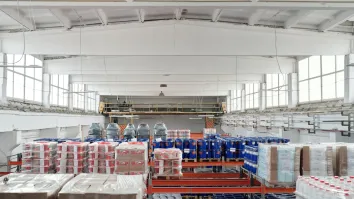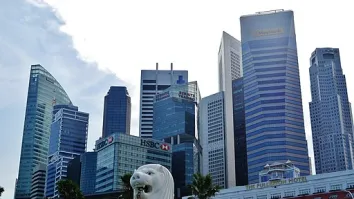
APAC real estate investment volumes drop to 10-year low in Q1
Investments declined by 33% to US$24.2 billion.
After a strong recovery in real estate investment sales in 2024, a Savills report revealed that investment activity in the region softened in Q1/2025 amid heightened economic uncertainties and geopolitical risks associated with the new Trump administration.
“Preliminary Q1 regional investment volumes fell to their lowest level in over a decade, declining by 33% YoY to US$24.2 billion*. Despite the cautious overall investment sentiment, however, several markets demonstrated an enduring appeal, including Japan, Australia, and India,” the report said.
Here’s more from Savills:
Japan retained its position as one of the most attractive markets in the region, and although widespread investor caution was noticeable after the January interest rate hike, interest remained, particularly from core-plus funds, family offices, and ultra-high-net-worth individuals. Two notable transactions of over US$1 billion took place in the mixed-used and retail sectors.
Australia saw a significant growth in terms of transaction volumes in the first quarter, fueled by rate cuts and expectations of further monetary easing. A strong sales performance in the retail and high-quality office sector was offset by a decline in industrial and logistics transactions. With commercial asset prices having bottomed out, capital flows are expected to rise, despite elevated global uncertainties.
In mainland China, investment activity showed signs of stablisation, thanks to supportive policy measures. Although the market continues to face headwinds, interest in distressed assets and long-term investments with favorable financing and higher yields is picking up. Two notable transactions of over US$700 million were recorded in the mixed-use and office sectors.
South Korea and Singapore both saw a decline in transaction volumes following a strong recovery in the previous year. Beyond heightened global uncertainties, both markets faced wide bid-ask spreads, particularly in Seoul’s office and Singapore’s commercial sectors. Hong Kong continued to experience weak investment activity due to tight credit conditions and unfavourable yield spreads.
A further decline in asset prices is expected, and investment activity will likely remain dominated by commercial end-users and distressed sales in the upper end of the residential market.
Among emerging markets, Indian saw robust investment activity, supported by private equity investment inflows and strong residential sales. Malaysia continued to perform well, particularly in the data centre sector, with several notable site acquisitions by Microsoft, Google and Open DC. Vietnam also saw a solid performance in the industrial and residential sectors, while retail and hospitality continued their recovery, supported by a rebound in international tourism.
All real estate sectors saw a decline in transaction volumes during Q1/2025, helping the office sector regain its lead, driven by demand for high quality assets in Japan and Australia. Retail also showed early signs of recovery, particularly in Australia, Japan, and Vietnam.
Industrial and logistics slowed, particularly in Australia and mainland China, while Seoul saw an improvement, benefitting from an easing of supply pressures and increasing foreign capital inflows. Demand for industrial and logistics assets in Japan, Vietnam, and Malaysia remained steady, with Malaysia’s growth mainly driven by rising demand for data centres.
Looking ahead, the recent US Reciprocal Tariffs Policy is creating a lot of uncertainty in global markets, with an impact extending well beyond mainland China. Despite a 90 day pause in new tariff measures, there are concerns that the Fed may delay its rate-cut schedule. As a result, a higher cost of capital could persist for longer than previously expected, potentially weighing on any recovery.
At the same time, the new tariff policy is likely to accelerate supply chain shifts towards lower-tariff jurisdictions, potentially Southeast Asia, fueling demand for industrial and logistics assets in those markets. Due to ongoing geopolitical and economic volatility, investors and occupiers are expected to remain wary.
With further negotiations and potential abrupt changes to the US’s tariff policy ahead, the full impact on the regional real estate market will likely become clearer in the coming quarters. For now, caution prevails.
*Office, retail, industrial, residential, hotel, and senior housing & care transactions over US$10 million, excluding development sites and pending transactions, as of 14th April 2025.



















 Advertise
Advertise





